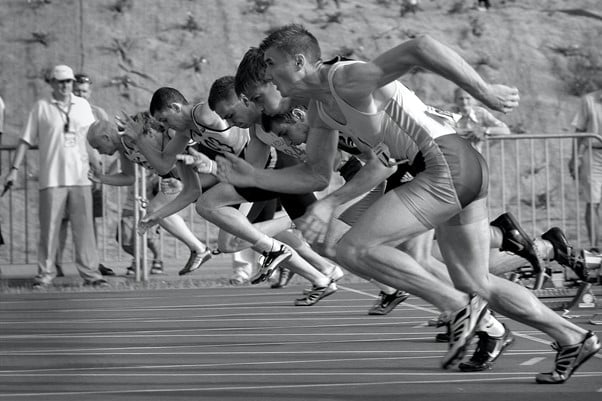Anabolic steroids are a performance-enhancing drug widely used in sports for decades. They are synthetic derivatives of the male sex hormone testosterone, which helps promote muscle growth and strength. The use of anabolic steroids in sports has been controversial for many years. Some argue that they should be allowed to enhance performance, while others say their service is unethical and can have serious health consequences. In this article, we will provide a historical overview of the use of anabolic steroids in sports, as well as an examination of their effects on athletic performance, ethical issues surrounding their use, and the legality of their use in sports.
The History of Anabolic Steroids in Sports
Early uses of anabolic steroids in sports
The use of anabolic steroids in sports can be traced back to the early 1930s when German scientists first synthesized testosterone. In the 1940s and 1950s, Soviet athletes began using testosterone to enhance their performance in various sports.
The 1950s and 1960s – The golden era of anabolic steroids in sports
The use of anabolic steroids in sports became more widespread in the 1950s and 1960s, particularly in the Olympic Games. During this time, anabolic steroids were not yet banned by sports organizations, and many athletes openly admitted to using them.
The 1970s and 1980s – Anabolic steroids become a widespread issue in professional sports
By the 1970s and 1980s, anabolic steroids had become a widespread issue in professional sports. Many athletes were using them to enhance their performance, and the health risks associated with their use were becoming more apparent.
The 1990s to Present – The rise of performance-enhancing drug testing
In the 1990s, sports organizations began implementing drug testing programs to detect the use of anabolic steroids and other performance-enhancing drugs. These programs have become more sophisticated over time, and athletes who test positive for banned substances can face serious consequences, including suspension and loss of endorsements.
Steroids In UK Sport
The use of steroids in UK sports has been a controversial issue for several decades. In the 1980s, steroids were prevalent in bodybuilding and powerlifting, and their use soon extended to other sports. The UK Anti-Doping Agency (UKAD) was established in 2009 to combat the use of performance-enhancing drugs in sport, including steroids. UKAD is responsible for implementing the World Anti-Doping Agency (WADA) code in the UK, which sets out the rules and regulations regarding doping in sports. Athletes found guilty of doping can face bans from competition and other disciplinary measures. Despite these efforts, the use of steroids in sports remains a concern, and there have been several high-profile cases of athletes testing positive for steroids in recent years. The UK government has also increased penalties for those involved in the production and distribution of steroids, and law enforcement agencies are working to tackle the illegal trade in performance-enhancing drugs.
The Effects of Anabolic Steroids on Athletic Performance
Explanation of how anabolic steroids enhance athletic performance
Anabolic steroids increase the amount of testosterone in the body, promoting muscle growth and strength. They can also help reduce recovery time after workouts, allowing athletes to train harder and more frequently.
The benefits of anabolic steroids in sports
The use of anabolic steroids in sports can provide some benefits for athletes, including increased muscle mass and strength, improved endurance, and faster recovery from workouts.
The adverse effects of anabolic steroids on athletic performance
While anabolic steroids can enhance athletic performance in the short term, they can seriously affect long-term health, including liver damage, heart disease, and infertility.
- The Ethical Issues Surrounding Anabolic Steroids in Sports
- The morality of using anabolic steroids in sports
Using anabolic steroids in sports raises ethical questions about fairness, safety, and the spirit of competition. Some argue that their use is unethical because it gives athletes an unfair advantage over those who choose not to use them.
The Impact of anabolic steroid use on the Fairness of Competition
The use of anabolic steroids can significantly affect the fairness of competition, as athletes who use them may have an unfair advantage over those who do not.
Buy Anabolic Steroids in Sports in the UK
Using anabolic steroids for performance enhancement in sports can lead to various health problems, including liver damage, cardiovascular disease, infertility, and psychological issues such as aggression and mood swings. Additionally, athletes who use anabolic steroids for sports performance enhancement can face serious consequences, including disqualification, suspension, and even criminal charges.
Prioritizing your health and well-being over short-term gains in sports performance is important. Instead of resorting to anabolic steroids, athletes can focus on proper nutrition, regular exercise, and training techniques to improve their performance safely and legally.
In conclusion, buying anabolic steroids for sports performance enhancement is illegal and poses serious health risks. It is important to prioritize your health and well-being and explore safe and legal ways to improve sports performance.
- The Legality of Anabolic Steroid Use in Sports
- An overview of legal restrictions on anabolic steroid use in sports
In most countries, using anabolic steroids without a prescription is illegal. In addition, sports organizations such as the International Olympic Committee (IOC) and the World Anti-Doping Agency (WADA) have banned anabolic steroids in competition.
The World Anti-Doping Agency’s stance on anabolic steroids in sports
The World Anti-Doping Agency (WADA) is responsible for setting and enforcing anti-doping rules in sports. WADA maintains a list of prohibited substances, including anabolic steroids, and conducts drug testing to ensure athletes are not using banned substances.
The penalties for violating anti-doping regulations
Athletes who test positive for banned substances can face serious consequences, including suspension, loss of medals and prizes, and even criminal charges in some cases. In addition, coaches, trainers, and other support staff can also face sanctions for their role in facilitating the use of banned substances.
Conclusion
In conclusion, using anabolic steroids in sports has a long and controversial history. While they can provide short-term benefits for athletes, their use raises serious ethical and health concerns. Sports organizations have taken steps to address the issue, including implementing drug testing programs and imposing penalties for violations. As the science behind performance-enhancing drugs continues to evolve, the debate over their use in sports will likely continue.
FAQs
Q: What are anabolic steroids?
A: Anabolic steroids are synthetic substances designed to mimic the effects of the male hormone testosterone. Athletes often use them to enhance their physical performance.
Q: When were anabolic steroids first used in sports?
A: Anabolic steroids were first used by Soviet athletes in the 1950s to gain a competitive
edge in international sporting competitions.
Q: What are the benefits of anabolic steroids in sports?
A: Anabolic steroids can help athletes to build muscle mass, increase strength and endurance, and improve recovery time after strenuous workouts.
Q: What are the adverse effects of anabolic steroids on athletic performance?
A: While anabolic steroids can provide short-term benefits, they can also adversely affect athletic performance, including increased risk of injury, decreased flexibility, and impaired cardiovascular health.
Q: Is it ethical to use anabolic steroids in sports?
A: There is significant debate over the morality of using anabolic steroids in sports. Some argue they provide an unfair advantage and go against fair play and sportsmanship principles.
Q: Are anabolic steroids legal in sports?
A: No, using anabolic steroids in sports is illegal and is banned by most sports organizations, including the International Olympic Committee and the World Anti-Doping Agency.
Q: What are the penalties for using anabolic steroids in sports?
A: Athletes caught using anabolic steroids can face serious consequences, including suspension, loss of medals and prizes, and even criminal charges in some cases.
Q: What is the future of anabolic steroids in sports?
A: As the science behind performance-enhancing drugs continues to evolve, the debate over their use in sports will also continue. New, more effective performance-enhancing drugs may be developed, but sports organizations will likely continue to take steps to detect and prevent their use.
Author

Dr. Aditya K. Sharma
I am Dr. Aditya Sharma, a dedicated urologist specializing in kidney transplants and advanced urological surgeries. My career is driven by a passion for delivering exceptional care and pioneering surgical techniques. Outside the operating room, I have a keen interest in studying the effects of anabolic steroids on bodybuilding, seeking to understand the fine line between enhancing performance and maintaining health.








